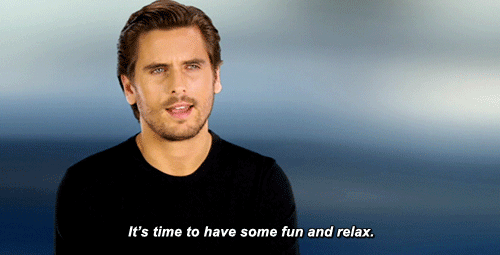A Guide To A Lighter Mind: How To Stop Overthinking
Less thinking, more living.
Do you know where the term, “cool, calm and collected” originated? An American TV commercial for deodorant. Remember this the next time you see anyone – or worse, anyone's lame Tinder bio – openly identifying with this term. Because unless you're a non-perspiring, cool-breeze-smelling armpit, it's not very likely you can “just be chill” all the darn time. The fact is that most of us have fallen victim to our own brain's tendency to get carried away with things: ruminating over insignificant details, worrying about the infinite outcomes of a future event, overly scrutinizing our past behavior... We know it's bad for us – research even suggests it's a rick factor for depression – but we still do it anyway.
As a fellow overthinker, I can't cure you with my words (even if I could, you definitely would not be human any more) but I can share with you some techniques I have utilized to take the edge off the anxiety and ultimately, remind my stubborn spaghetti brain who's the frickin boss.
Stop, drop and roll!

Don't worry, you haven't left your straighteners on, but it is quite possible your brain is on fire. So do what the lovely firemen showed you at school and fucking steam-roll those flames out.
In all seriousness though, negative thoughts do spread like wildfire: violently and uncontrollably. If you notice that your thoughts are multiplying, amplifying and engulfing you whole, break out the extinguisher – literally shout “STOP!” if it helps. Then drop those thoughts onto the back-burner to either save for a better time (when it's not three in the morning or one hour before lunch time, for example) or split into manageable chunks to challenge one by one.
Ask yourself: Is this productive? Am I being overly negative? What is the actual likelihood that this terrible thing could happen? Usually adding an element of logic ( i.e. relinquishing the control from your brain monkey) will help you see things in a better light.
Change the channel

If you can't find the fire extinguisher, or your red-ass mind baboon is too hard to contain, time to employ sneaky tactics instead: distraction.
If there's one thing anxiety has taught me, it's that I am really housing two brains beneath my curly mop: the conscious brain (the sensible, semi-logical angel, if you like) and the devilish unconscious brain (the animal part of my mind that does what the hell it wants). Realizing that your negativity is most likely being driven by unconscious habits or complexes means that sometimes the best way to escape from that is switching your conscious focus back to the present.
You can do this with mindfulness and meditation – using simple breathing techniques to relax and focus your mind – by exercising, drawing, listening to music, even engaging in small talk. Just make sure you hold your focus on what you're actually doing.
Accept you can't control everything

As philosopher, Alan Watts once wrote: “life is...a flowing process, change and death are its necessary parts. To work for their exclusion is to work against life.”
In this instance, we can see death as a metaphor for all the bad things you're fretting about: the infinite negative possibilities which could involve everything from failing an exam to your boyfriend cheating on you too, well, actual death. You're not going to stop your boyfriend cheating on you by lamenting about whether he will – or worse, trying to control him so much that it's impossible for him to do so – and it's more likely you'll fail your exam if you're worrying instead of working.
But if negative and unfavorable things do end up happening, you have to accept that not only are they part of life, but they are also great opportunities to learn. We've all made so many mistakes and become better people because of them. Keep your chin up and try to take life as it comes.
Become a problem-solver

Overthinking is a form of procrastination: try not to waste time dwelling on vague problems and fears when you could be looking for solutions instead.
I have to confess, I am extremely guilty of worrying myself away from the task at hand: inflating small issues so much that it seems it is impossible to resolve them – and therefore I don't. The problem is that when you're passive about your problems, they grow teeth and come back to bite you in the ass. I have learned the hard way that adopting an active – if, somewhat emotionally detached – problem-solving stance at the beginning when the issues are relatively small, is much easier than trying to dissect a monstrous problem conglomerate. Again, it's all about taking the control back from your erratic cerebral ape.
Set yourself time limits for decisions and create to do lists: systematize yourself. You're one step closer to cool-armpit utopia.
Check your environment

We often underestimate the effect of our environment on our mental health, but it stands to reason that if you are constantly subjected to stressful people and situations, it will impact negatively upon your mind.
For example, one recent study investigated the impact of nature experience on affect and cognition, finding that, compared to urban walking, walking in nature resulted in decreased anxiety, rumination, and negative affect, and preservation of positive affect and increased working memory performance.
So get out of the concrete jungle, take a break from your moody friend for a while and find peace in your surroundings. You'll feel a whole lot better, I promise.












